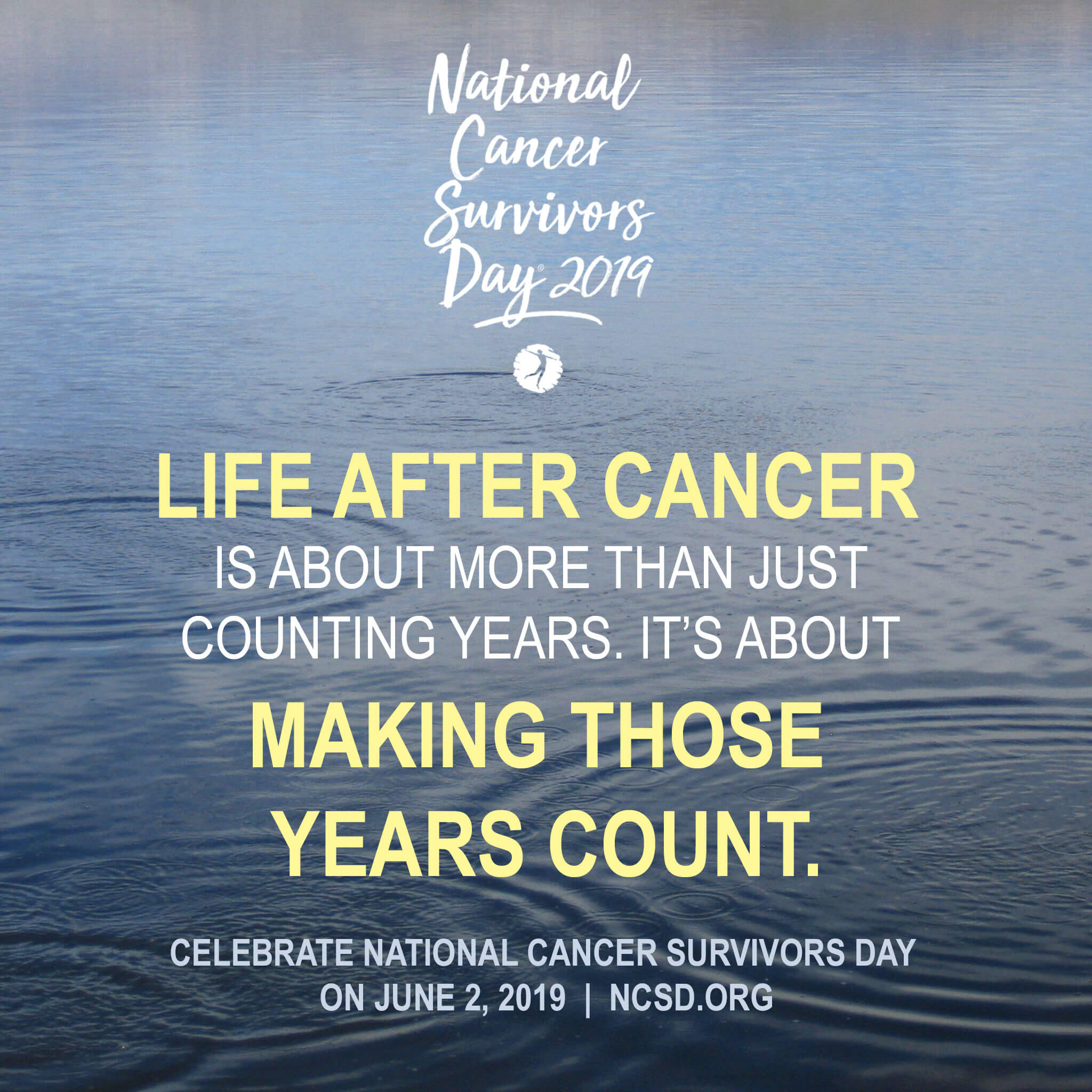“
From the moment of diagnosis and for the balance of life, an individual diagnosed with cancer is a survivor.” -National Coalition for Cancer SurvivorshipJune 2, 2019 marked the 32 annual
National Cancer Survivors Day®, a day that honors those who are living with a history of cancer.
1 The
National Coalition for Cancer Survivorship (NCCS) coined the phrase “cancer survivorship” as a way to describe the experience of living with, through, and beyond a cancer diagnosis.
2 The NCCS’ definition of a cancer survivor has expanded to include family, friends, and caregivers in recognition that they too are a part of the survivorship experience. As experts in the field of genetics, we recognize that cancer survivors face unique challenges that impact not only the survivor, but their family members.While all cancer is genetic, only 5%-10% of all cancer is
hereditary; meaning there is a DNA change (genetic variant) in a gene or genes that can be passed on from generation to generation and increases cancer risk. Knowing if a family member carries a genetic variant allows for better cancer risk prediction and gives individuals an opportunity to look for cancer earlier or take steps to lower their risk.

In this article, we address a commonly asked question in the field of cancer genetic counseling:
“I have already had cancer, so why would I need genetic testing?”Women and men with hereditary cancer syndromes have a higher than average chance of developing another, different cancer.Genetic variants in cancer genes can lead to the development of many different types of cancer. Individuals with Hereditary Breast and Ovarian Cancer syndrome (HBOC), caused by variants in the
BRCA1 or
BRCA2 genes, have a higher than average chance to develop breast, ovarian, prostate, and pancreatic cancer. Women with HBOC have a 43% chance of developing cancer in the opposite breast within 10 years of the first diagnosis and a 7-13% chance to develop ovarian cancer after breast cancer.
3,4 Individuals with Lynch syndrome have up to a 70% chance in their lifetime to develop a second primary colorectal cancer after their first diagnosis of colon cancer.
5 Lynch syndrome also increases a person’s risk for endometrial, ovarian, stomach, and other cancers. Because of the increased chance to have more than one type of cancer, people with these or other hereditary cancer syndromes should follow specific guidelines for early cancer detection (such as yearly breast MRI or yearly colonoscopy) and cancer prevention (such as surgery to remove ovaries).
A genetic test result from a person who has had a diagnosis of cancer provides the most accurate risk assessment for other family members.For example, a man is diagnosed with colon cancer at age 40 and has no other family history of cancer. His doctor orders a multi-gene genetic testing panel and the result shows that he has a disease-causing variant in the
MLH1 gene, giving him a diagnosis of Lynch syndrome. We now know that his colon cancer was due, at least in part, to his diagnosis of Lynch syndrome. His family members can use this information to guide their own genetic testing. Family members who test positive for the
MLH1 variant also have Lynch syndrome and can benefit from early cancer detection and prevention. Family members who do not have the
MLH1 variant have cancer risks more in line with the general population and may not need additional screenings.Now, let’s say this man with colon cancer does
not have genetic testing, but a healthy brother
does. If the brother’s genetic test results are
negative, then Lynch syndrome goes undiagnosed for this family. We recognize that it is not always possible to test a person who has been diagnosed and acknowledge that this should not prevent a family member from pursuing testing.
Genetic testing technology is ever-changing, as is our understanding of genes and genetic variants.It is important for cancer survivors to talk to their healthcare providers about genetic testing on a regular basis, even if prior testing did not find any clinically important variants. In some cases, those who have had negative genetic testing in the past could consider additional testing. For example prior to 2014, genetic testing for the
BRCA1 and
BRCA2 genes may not have included a certain type of analysis called large rearrangement analysis. If a person had
BRCA1/2 testing prior to 2014, their test needs to be updated.A person’s family history of cancer can also change over time which can prompt further genetic testing recommendations. It is necessary to report any family history changes to a genetic counselor or other healthcare provider.
Did you know?There are published guidelines by the American Society of Breast Surgeons
6 and the National Comprehensive Cancer Network® (NCCN)
7 that support the consideration of hereditary cancer genetic testing for
all individuals with:
- Female breast cancer6
- Male breast cancer7
- Metastatic/aggressive prostate cancer7
- Ovarian cancer7
- Pancreatic cancer7
“
We urge everyone who participates in National Cancer Survivors Day® celebrations to not only recognize those who are living with a history of cancer but also raise awareness of the hardships cancer survivors face beyond treatment.” –
National Cancer Survivors Day®References- National Cancer Survivors Day website. https://www.ncsd.org/posts/who-is-a-cancer-survivor. Accessed May 22, 2019.
- National Coalition for Cancer Survivorship website. https://www.canceradvocacy.org/about-us/our-mission/. Accessed May 22, 2019.
- Metcalfe K, Lynch HT, Ghadirian P, et al. Contralateral breast cancer in BRCA1 and BRCA2 mutation carriers. J Clin Oncol. 2004;22(12):2328-2335.
- Metcalfe KA, Lynch HT, Ghadirian P, et al. The risk of ovarian cancer after breast cancer in BRCA1 and BRCA2 carriers. Gynecol Oncol. 2005;96(1):222-226.
- PMID 30302651: Lindberg LJ, Wegen-Haitsma W, Ladelund S, et al. Risk of multiple colorectal cancer development depends on age and subgroup in individuals with hereditary predisposition. Familial Cancer. 2019;18(2):183-191.
- The American Society of Breast Surgeons website. https://www.breastsurgeons.org/docs/statements/Consensus-Guideline-on-Genetic-Testing-for-Hereditary-Breast-Cancer.pdf. Accessed May 22, 2019.
- National Comprehensive Cancer Network website. https://www.nccn.org/professionals/physician_gls/pdf/genetics_screening.pdf. Accessed May 22, 2019.
Your Privacy Choices





